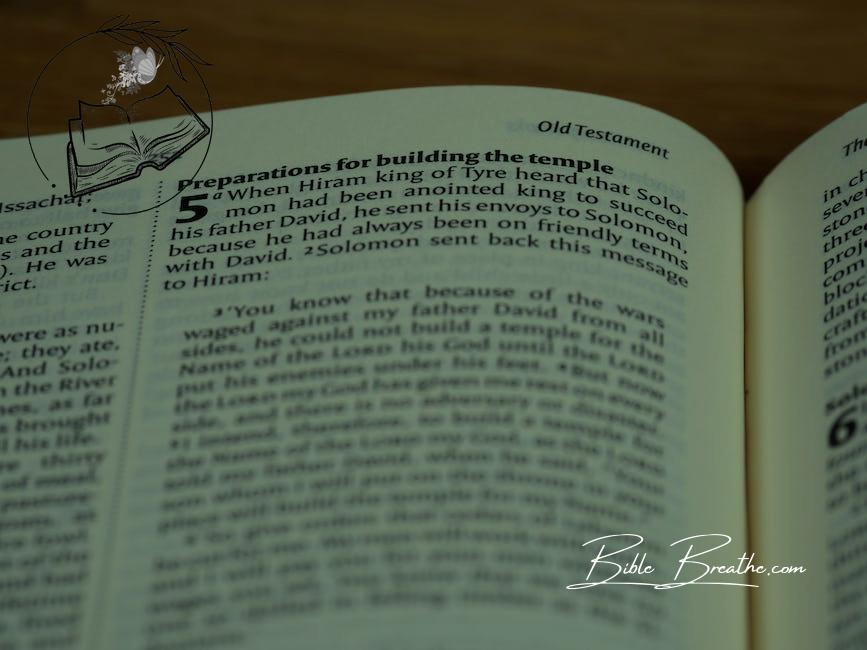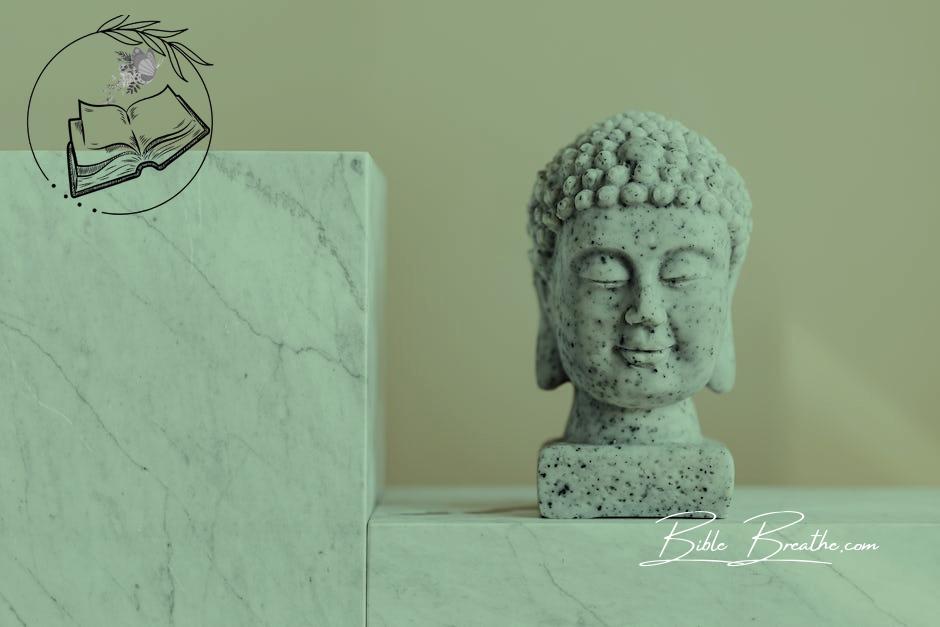What’s the Quran’s take on the Bible?
Now, that’s like exploring two ancient scrolls that have seen their fair share of history.
This ain’t just any topic; it’s a spiritual bridge between the Quran and the Bible.
So, let’s dive right in, y’all.
The Quran, it’s the holy book of Islam, and it’s got some things to say about the Bible, no doubt.
It’s like looking through Surah 10:94 and Surah 5:68-69 to get a peek into how the Quran views the Tawrah (Torah), Injil (Gospel), and even Jesus.
And you’ll find biblical figures making appearances too.
We’re not just talking about whether the Bible is legit in Islam; it’s about comparing the two, understanding the messages from different prophets, and what’s up with righteousness, the Last Day, and believers and doubters, including Christians, Jews, and Sabians.
So, grab your spiritual compass, ’cause we’re about to navigate through the Quran’s view on the Bible.
🌟
Key Takeaways
- The Quran acknowledges the Bible and its teachings, recognizing it as a prior divine revelation. This acknowledgment highlights the interconnectedness of these two scriptures.
- It is essential to understand both the Quran and the Bible within their respective historical and cultural contexts. This context provides valuable insights into the messages and teachings contained within these sacred texts.
- The Quran emphasizes the importance of following all divine revelations, including the Bible. Muslims are encouraged to respect and learn from the wisdom and guidance present in both scriptures.
- Interfaith dialogue and understanding between followers of the Quran and the Bible can promote mutual respect and peaceful coexistence. Recognizing the commonalities and differences in these scriptures fosters a more inclusive and harmonious society.
- Exploring what the Quran says about the Bible underscores the significance of religious pluralism and the interconnectedness of diverse faith traditions, encouraging individuals to seek wisdom and spiritual guidance from a variety of sources.
Quran and Bible: A Dance Through Time
Photo modified by BibleBreathe.com. Original photo by HANUMAN PHOTO STUDIO🏕️📸 on Pexels
Have you ever wondered about the relationship between the Quran and the Bible?
It’s like watching two old friends, each with their own stories, meet at a crossroads.
Let’s dive into this fascinating connection.
A Historical Tango
To grasp what the Quran has to say about the Bible, let’s hop into a time machine and journey through history.
The Quran and the Bible share common roots in the Abrahamic tradition.
Think of them as two ancient trees, their branches stretching in different directions, but their roots deeply intertwined beneath the surface.
The Quran, seen by Muslims as the literal word of God, was revealed to the Prophet Muhammad over 23 years, starting in the 7th century CE.
On the other hand, the Bible, composed of the Old and New Testaments, holds centuries of wisdom and divine revelations, predating the Quran by a long stretch.
Imagine the Quran as a guiding light, acknowledging the Bible as a precursor.
It references the Bible in several verses, stressing the importance of recognizing previous revelations.
As the Quran states in Surah 10:94:
“So, if you are in doubt, [O Muhammad], about that which We have revealed to you, then ask those who have been reading the Scripture before you.” – Surah 10:94 (Quran)
The Power of Translation
But here’s the twist: the Quran, originally written in classical Arabic, engages with the Bible indirectly through translations.
Think of it like a classic novel read in different languages; there may be subtle nuances lost in translation.
Similarly, the Bible has been translated into various languages, including Arabic, over the centuries.
The Quran acknowledges these translated versions, urging those who read them to ensure they align with the original teachings.
Now, let’s talk about Tawrah (Torah) and Injil (Gospel), terms the Quran uses to refer to the Jewish and Christian scriptures, respectively.
The Quran recognizes these texts as divine revelations from God, but it strongly emphasizes the importance of following the Quran as the final and most comprehensive guidance.
So, what’s the Quran’s take on the Bible?
It acknowledges its presence, encourages seeking wisdom from it, but firmly asserts its own divine authority.
Just as in life, where we learn from those who came before us, the Quran respects the teachings of the Bible while emphasizing its position as the ultimate guide for believers.
In this journey through history, we’ve unveiled the Quran’s perspective on the Bible, a perspective that blends respect for the past with a vision for the future, much like those ancient trees with their intertwined roots.
Quranic Insights on the Bible: A Spiritual Expedition
Photo modified by BibleBreathe.com. Original photo by Brett Jordan on Pexels
Are you ready to embark on a profound journey of understanding the Quran’s perspective on the Bible?
Let’s dive into these sacred verses that illuminate this fascinating topic.
Surah 10:94 – Seeking Guidance
Surah 10:94 shines like a lighthouse in the Quran, guiding us with these words:
“If you are in doubt about that which We have revealed to you, then ask those who have been reading the Scripture before you.” – Quran 10:94
Imagine this as seeking wisdom from those who have walked the path ahead of us.
Just as an experienced guide shares insights about a trail, the Quran encourages us to consult the teachings of the Bible when uncertainty clouds our understanding.
Surah 5:68-69 – Embracing Divine Wisdom
Surah 5:68-69 enriches our insight even further:
“Say, ‘O People of the Scripture, you are [standing] on nothing until you uphold [the law of] the Torah, the Gospel, and what has been revealed to you from your Lord.’ And that which has been revealed to you from your Lord will surely increase many of them in transgression and disbelief. So do not grieve over the disbelieving people.” – Quran 5:68-69
These verses underscore the importance of upholding the Torah and the Gospel, reminding us that, just like a car needs all its parts to function smoothly, our spiritual journey is enhanced when we honor the wisdom contained in these scriptures.
As we journey through the Quran’s references to the Bible, we’ll discover more pearls of wisdom that highlight the interconnectedness of these sacred texts.
Stick with us on this exploration, and together we’ll gain deeper insights into the Quran’s perspective on the Bible’s significance.
Quran’s Take on Biblical Icons
Photo modified by BibleBreathe.com. Original photo by revac film’s&photography on Pexels
When it comes to the Quran’s view of figures from the Bible, it’s like taking a stroll through the gallery of history, admiring how these iconic individuals are depicted in both holy texts.
Jesus: A Shared Portrait
Let’s kick things off with Jesus, a central figure in both the Quran and the Bible.
In Christianity, Jesus is revered as the Son of God and the central character of the New Testament.
But the Quran offers a unique perspective.
It acknowledges Jesus as a prophet and a messenger of Allah (God), calling him ‘Isa’ in Arabic.
Think of it like two artists painting a portrait of the same person but from different angles.
The Quran’s portrayal of Jesus highlights his miraculous birth to the Virgin Mary and his role as a messenger sent to guide the Children of Israel.
This aligns with the Quran’s broader message that there is only one God, Allah, and all prophets, including Jesus, were sent to convey this truth.
“O People of the Scripture, do not commit excess in your religion or say about Allah except the truth. The Messiah, Jesus, the son of Mary, was but a messenger of Allah and His word which He directed to Mary and a soul [created at a command] from Him. So believe in Allah and His messengers. And do not say, ‘Three’; desist – it is better for you. Indeed, Allah is but one God. Exalted is He above having a son.” – Surah 4:171 (Quran)
A Literary Duel
Now, let’s step into a literary showdown—a comparison between how the Quran and the Bible portray prominent figures.
It’s like reading two books about the same historical event but written from different perspectives.
In the Quran, you’ll encounter references to biblical figures like Adam, Noah, Abraham, Moses, and David, among others.
The Quran reaffirms their status as prophets and their vital roles in guiding humanity.
It’s like an echo from history, confirming the presence of these revered figures in both traditions.
However, there are variations in the narratives.
Take the story of Noah’s Ark, for example.
While it shares similarities with the Bible, it also includes unique details.
This divergence is like two puzzle pieces that fit together but have distinct patterns.
“And We had certainly sent Noah to his people, and he said, ‘O my people, worship Allah; you have no deity other than Him.'” – Surah 23:23 (Quran)
In essence, the Quran’s perspective on biblical figures offers a nuanced and complementary view.
It acknowledges their importance while emphasizing the central message of monotheism and the Quran as the ultimate guidance.
As we dive into these Quranic insights, we realize that, like two artists contributing to a grand masterpiece, the Quran and the Bible may have different strokes, but they both enrich the tapestry of religious history.
It’s a tapestry where each thread, though distinct, weaves together to create a profound narrative of faith.
The Quran’s Take on the Bible’s Authenticity
Photo modified by BibleBreathe.com. Original photo by Karolina Grabowska on Pexels
As we continue our journey through the Quran’s perspective on the Bible, we arrive at a pivotal question: What does the Quran say about the authenticity of the Bible?
Let’s unveil the Quranic insights into this intriguing topic.
Quranic Recognition of the Bible
The Quran acknowledges the Bible, particularly the Torah and the Gospel, as divine scriptures.
It perceives them as revelations sent by Allah to illuminate the path for humanity.
This recognition bestows a sense of legitimacy upon the Bible within the Islamic tradition.
Think of it as an ancient library that treasures historical manuscripts containing profound wisdom.
While the Quran respects the divine origins of the Bible, it also raises a fundamental question: Has the Bible remained unaltered throughout the ages?
The Quran suggests that with the passage of time, some modifications may have crept into the text.
However, it doesn’t outright dismiss the entire Bible.
Picture this as a wise mentor, acknowledging a student’s efforts while encouraging them to review and verify their notes for accuracy.
Embracing All Divine Books
In Islamic faith, it’s not only the Quran that holds significance; all divine books, including the Bible, are deemed important.
The Quran urges believers to embrace the teachings of these earlier scriptures, underscoring their role in guiding humanity towards righteousness.
Imagine it as a vast library where each book offers a unique perspective, and reading them all enriches your comprehension of the world.
So, what does the Quran convey about the Bible?
It conveys respect, recognition, and the importance of following the divine guidance contained within it.
Simultaneously, it calls for a discerning examination of its preservation.
Ultimately, the Quran encourages believers to seek wisdom from all the Books revealed by Allah, recognizing that they all contribute to the journey towards spiritual enlightenment.
Clarifying Misunderstandings: Quran’s View of the Bible
Photo modified by BibleBreathe.com. Original photo by Andrea Piacquadio on Pexels
In our quest to understand what the Quran truly says about the Bible, it’s essential to shed light on common misconceptions that might muddy the waters.
Let’s dispel the fog and seek clarity on this captivating topic.
Unraveling Misconceptions
Misconception #1: The Quran Rejects the Bible
Some may think that the Quran flat-out rejects the Bible, but this isn’t entirely accurate.
The Quran acknowledges the Bible’s existence, especially the Tawrah (Torah) and Injil (Gospel), as divine revelations.
However, it emphasizes the Quran as the final and most comprehensive guidance.
It’s like appreciating a classic book while advocating for a newer edition that contains all the essential wisdom.
Misconception #2: The Quran Contradicts the Bible
While there may be differences between the Quran and the Bible in terms of details and stories, the core message of monotheism and righteousness remains consistent.
The Quran often reaffirms the teachings of previous scriptures, encouraging believers to follow the path of righteousness.
It’s like two friends giving slightly different directions to the same destination, but both paths leading to a similar moral compass.
Clarity in Context
To truly grasp what the Quran says about the Bible, we need to dive into the context of specific verses.
Take, for instance, Surah 10:94, a verse frequently cited in discussions about the Quran’s stance on the Bible.
In this verse, Allah instructs the Prophet Muhammad to consult the People of the Scripture, those who possess knowledge of previous revelations, when in doubt.
This verse isn’t a dismissal of the Quran’s authority but a recognition of the wisdom found in earlier scriptures and an invitation to engage in dialogue.
It’s akin to seeking advice from experts in a field when faced with a complex problem, without undermining your own expertise.
“So, if you are in doubt, [O Muhammad], about that which We have revealed to you, then ask those who have been reading the Scripture before you.” – Surah 10:94 (Quran)
Similarly, Surah 5:68-69 encourages people to hold steadfast to their respective beliefs while highlighting the importance of dialogue, understanding, and respect among Christians, Jews, and Muslims.
It’s like constructing bridges between different houses of faith, ensuring they stand strong side by side.
In conclusion, the Quran’s perspective on the Bible is nuanced and respectful.
It doesn’t reject the Bible but rather recognizes its significance while affirming the Quran’s ultimate authority.
By dispelling misconceptions and delving into contextual clarity, we can appreciate the interconnectedness of these divine texts and the universal message they convey.
Frequently Asked Questions (FAQs) About What Does The Quran Say About The Bible
What does Surah 10:94 say about the Bible?
Surah 10:94 in the Quran encourages those in doubt about its authenticity to consult people with knowledge of previous scriptures, which includes the Bible.
It recognizes the value of seeking guidance and knowledge from people of wisdom.
How does the Quran view Jesus compared to the Bible?
The Quran and the Bible have different perspectives on Jesus.
In the Quran, Jesus is considered a prophet, not the Son of God.
While both texts acknowledge his miraculous birth, the Bible portrays Jesus as the Savior and the Son of God, while the Quran emphasizes his prophetic role and submission to Allah.
These differences reflect varying religious beliefs.
Why is the translation of the Bible into Arabic significant in this discussion?
Translating the Bible into Arabic facilitates access to Scripture for Arabic speakers, aiding understanding and application of its teachings.
It spreads the message of faith, enriches theological discussions, and broadens the reach of biblical wisdom.
It enables Arabic-speaking individuals to engage directly with the Word of God, fostering spiritual growth and a deeper connection with their faith.






